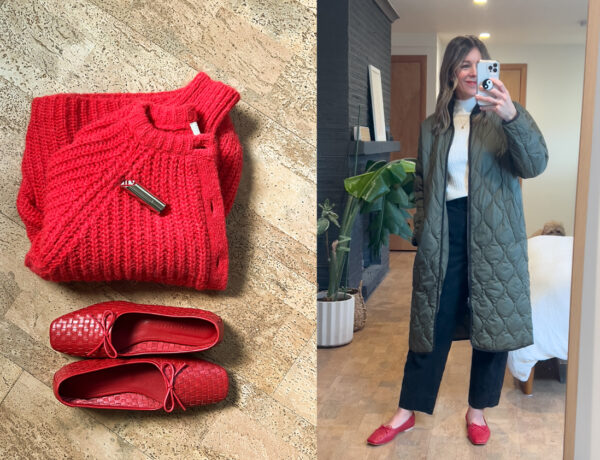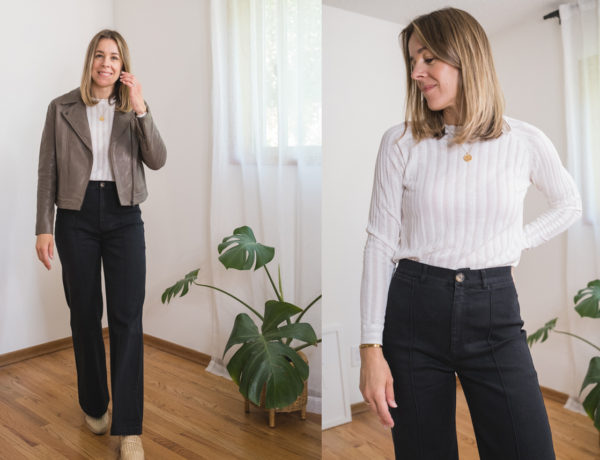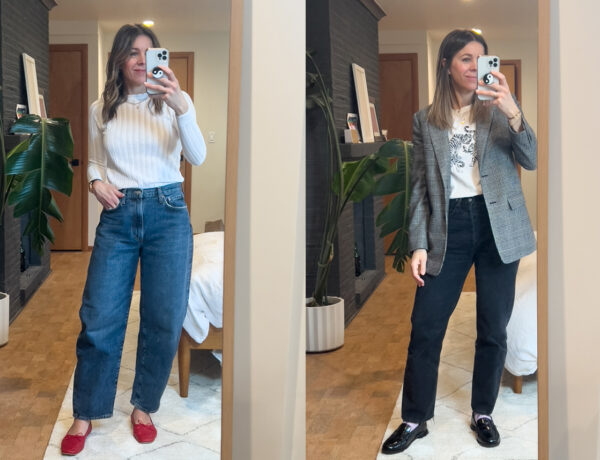
This is not a fitness blog, but over the course of several months of quarantining (aka, feeling stuck at home with ‘nothing’ to do) I’ve become a fitness person. I’ve spent the last (nearly) three months learning about the nutritional components of everything that goes into my body, and I’ve spent about the same amount of time focusing on weight-based training in lieu of the cardio/plyometric stuff I used to (casually) do.
If you missed my first blog post on the topic, you can read it here.
Today, I wanted to give you guys an update on how it’s going. I recently completed a 30-day fitness challenge that included 6 workouts/week and a strict macro schedule of carb cycling (with a focus on fat loss). I am currently ‘reverse dieting’ which means I’m slowly adding more macros/calories to get back up to a maintenance amount of calories (which is hopefully 2000+). I learned from the Biceps After Babies podcast that if you jump back up to maintenance eating after a cut, your metabolism won’t be ready because you conditioned it to work with fewer calories during your cut. In other words, over time, being in a cut slows your metabolism (which is why a cut should always be short lived), and you have to ‘train’ your metabolism back up to a place of maintenance eating. Skipping this step is a major contribution to yo-yo dieting, when after fat loss, people up their calories to an otherwise healthy place, but gain back what they lost.
I did a cut because I wanted to see some results from the weight training I have been doing. I wanted to lean out a little from where I was. The scale moved down a few pounds (yes, I own a scale now) but I definitely feel leaner all around, and I’m seeing more muscle definition in my arms and legs, so I am feeling pretty stoked!! I love weight lifting because it focuses more on what I can add to my body rather than what I can take away. I love the idea of working out with the goal of building something long-term (rather than being forever on the cardio merry-go-round). I can’t wait to see where I will be in another 3 months, 6 months or year.
The benefits of macros.
As I touched on last time, I started getting into nutrition because I wanted to see more results from working out. Tracking macros is like eating food with a map. That map helps optimize your food choices to get the maximum amount of food and nutrients and reach your goals. I like tracking macros because it feels more like adding food than subtracting. And I feel like I eat WAY more whole foods this way than when I wasn’t tracking. I don’t know if I will track forever, but for now, I am really enjoying the freedom and control it gives me. I love knowing that what I am eating is nourishing my body and building muscles.
The dangers of macros.
I have noticed in the fitness/macro counting community a trend toward ‘sugar free/fat free’ items. I know these are used to essentially fit more food in without increasing fat, carbs, etc., but I think ‘diet’ food is a slippery slope. I don’t like it because of the fake ingredients. But more so, I don’t like it because I think it encourages a palate for treats and sweets every single day. I LOVE sweets and treats, but I think eating them in their whole sugar state forces moderation, which is really important. Right now, my kids are eating what I eat and watching what I eat. I am trying to teach them that fruit is an awesome dessert, and sometimes dark chocolate or ice cream is too. I am not perfect by any means, the protein powder I use has a form of stevia, but I try VERY hard to limit/omit fake stuff.
As with any form of controlled eating, tracking macros can easily lead to obsession and unhealthy habits. If you have a history of disordered eating, it’s probably not the best idea. Tightly controlling your food intake can also lead to binging when you go off course. The ‘all or nothing’ mentality can be very easy to slide into and lead to a vicious cycle. I do go off course of my macros from time to time, but I still try to track it, not make a big deal of it, and do better the next day.

Q & A
I opened up a question box on Instagram and you guys asked lots of great ones!
How many days a week is Madeline Moves?
Great question! As I mentioned in the last post I have been following Madeline Moves for about 3 months, and I love it. Madeline is a wealth of knowledge and I love her positive encouragement! I just completed Tighter Together, which was a month of 6 days a week workouts, and now, this week I am back to the usual 5 days a week. I love the workouts because they are never the same!
How do you access the Madeline Moves workouts – on the app or a laptop?
I use the app. It’s not the slickest app out there, but I am used to it now.
I also use the SIT app as an interval timer because it has clear audible cues, counts down and is really easy to use.
How [do you] incorporate more cardio since it’s getting unbearably hot?
I usually only do a little bit of cardio each week, and it’s walking in the evenings! The app usually includes 1-2 days of higher intensity cardio each week, and I try and do it in the morning, in the garage before it gets hot.
What equipment do you use most frequently?/ Curious about how much equipment you needed to buy to do Weekly Moves from home?
Another great question! I’ll answer the second part first. I was lucky in that my husband already had various dumbbells and a bench, and in recent years we had added items like cables, yoga mats, and floor pads for the garage. When we switched to doing Weekly Moves the only thing we needed to buy were bands. (I think we are going to upgrade to these ones soon!) The items I use the most: my 10 and 15 lbs dumbbells, the bands and cables. The bench is a nice option, but I don’t use it very often. Unfortunately, a lot of this stuff is hard to find for purchase, so I don’t have any dumbbells to link to. But if you’re shopping, I find for 10 lbs. and under I like the coated dumbbells, and for anything 15 lbs. and up, the metal handles make for a better grip.
One of these days I’d like to add a barbell, but for now I use dumbbells on my shoulders. Sometimes I even double up and use two in each hand. We have learned to improvise a lot. For step ups or even box jumps I use an old milk crate, for elevated heel stuff I use a ream of printer paper, for small step ups I use an old concrete block, basically we have learned to get creative with whatever we have in our garage!
[Do you] track macros on specific days if training (i.e. more/less carbs for heavy lifting days?
My only experience with this has been through the Tighter Together challenge with Madeline Moves. We did carb cycling and ended up with high carb days right before our leg day workouts, which are usually the most taxing.

What has been the hardest part of the journey so far?
It’s super weird to say, but it doesn’t feel like it’s been that hard because right now we aren’t really living in what I’d call our ‘real life.’ We can always find the time to workout because we’re working from home. Eating extra healthy and considered is very doable because we are not eating out and we are having very few social gatherings.
But in some ways it *has* been hard. Restricting alcohol – which is loaded with carbs – has been hard, but I think it makes me healthier to drink less/not at all. Telling myself no at night when all I want to do is reach for a handful of goldfish while I watch TV has been hard. Holidays and social gatherings have been interesting. I’ve dealt with them by usually eating an extra healthy lunch and then allowing sort of a cheat meal for the evening. (I’m thinking of Mother’s Day/4th of July.)
One of my biggest takeaways from the last three months is that I’ve learned fitness is a long haul, not a quick fix. As cliché as it is, it truly is a lifestyle. It’s a lifestyle of a lot of little choices for a long time that add up to significant results over a span of time. Understanding this makes me much more patient with the process of exercise, muscle building and eating. I feel much more patient with my body, and I recognize the importance of setting macro/nutrition goals that are sustainable for the long term.
Alright, I’ve covered lots of ground, but I’m sure I’ve missed something. Feel free to ask anything else you want to know in the comments down below.





Thank you! I loved this post – mostly because you look so confident and happy!
Thanks Sara! It’s been a fun journey!
I am happy you’re happy, but I’ll honestly say that I hope this doesn’t become a theme on the blog. After some traumatic experiences I have found intuitive eating and have happily been cutting diet culture from my life. I *love* reading about both fashion and fitness, but have little tolerance for diet talk.
Hi Meg, thanks for sharing this feedback. I’ll make sure to clearly identify any health/nutrition/fitness posts in the future in case people want to skip those. I recognize we all have different relationships with food and I’d hate to jeopardize someone else’s. Thank you for your kind words about my fashion content, I promise that will continue. :)
Like Meg, I’m happy you’re happy. As somebody who has worked as a nutrition educator, with a past as an athlete, coach, and personal trainer and, now, on the wonky policy side of nutrition education I’m always uncomfortable when people talk about nutrition without the appropriate background. This has more to do with Madeline than yourself. I can’t find anywhere on her site that states she is an RD although there is verbiage about the college classes she took along with her interest in nutrition. That’s not an RD. I like your blog. You and the clothing you present is great and fun. You are one of the first style blogs I began following. I just do not want to hear more about macro/micro intake. It’s great you’re making healthy choices but healthy choices also come with a huge amount of privilege, e.g., class, mental health, skin color, cultural background, access, etc.
Hi Dawn, there is definitely a lot of privilege that comes with food choice, you are so right. I don’t take that lightly. I can’t promise to not share about my fitness journey, but I’ll do my best share in a non-triggering way with disclaimers for readers to feel welcome to skip the post. I’m really glad you enjoy the style content on my blog, that will certainly continue. :) Thank you for sharing your insights!
And thank you for your thoughtful reply!
Love this, Andrea! I feel for the people that commented and said that diet talk can be triggering. I get it, but you are obviously just sharing a health/fitness routine that has made YOU happy, and you’re so clearly not doing it as a “diet” but as a lifestyle change. I hate diet talk too, and will probably never go the route of counting macros because it’s just not for me, but different things work for different people and I don’t think that the answer is to just not talk about eating or fitness at all. Losing weight is not inherently bad, just like gaining weight is not inherently bad! Everyone’s on their own fitness and health journey, and I’m really glad that you’ve found a routine that works for you. From my own perspective, it doesn’t make me feel triggered; it actually makes me excited to make my health a priority in the way that works for me after I have baby #2, which is balanced eating + running + barre (miss my barre classes so much)!!
Hi Tara, thanks so much for sharing your insights/perspective. I feel like this is the healthiest perspective I’ve ever had with food. It feels really good to eat high volumes of food that is good for me! And I feel like I am finally in a place of valuing muscles over skinny, which is a positive shift for me. I am vary of diet culture (and especially diet ‘foods’) as well. I will keep trying to be mindful not to promote that. I always love when you share food content on IG it inspires me to want to make similar things! Thanks for making me feel understood.
I respect your journey and path, and like other commenters have expressed I encourage you to consider a content warning on future posts about restrictive eating. I have recently been learning so much about intuitive eating and diet culture — I am very much new to these topics, and some resources that are opening my mind to the harms of diet culture are: the Food Psych podcast, Shana Spence (thenutritiontea on IG) and Be Nourished (which I think is based in Portland). Food Pysch has some great episodes connecting the dots between “health and wellness culture” and white supremacy. Even if you wouldn’t refer to your practices here as a diet, I really encourage you to learn more about how pervasive and harmful diet culture is before posting this information to your readers.